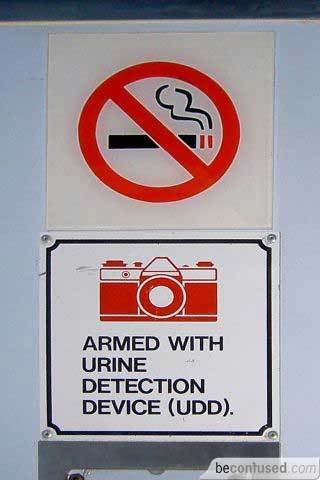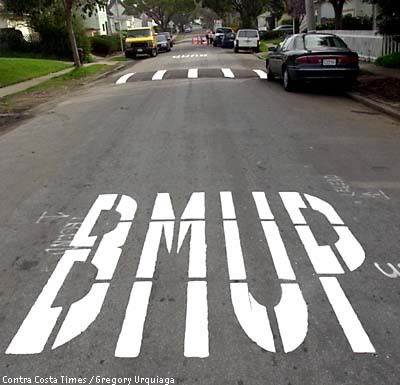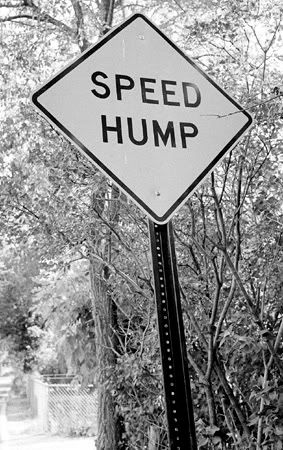Supporters of the English language stepped up their campaign against obvious signs and labels yesterday, including a Hertfordshire Police sign urging citizens "Don’t Commit Crime."
The Plain English Campaign (PEC) was founded in London in 1979 with the public shredding of hundreds of official documents in Parliament Square. The movement, which advocates the effective use of English, now has over 11,000 members.
A spokesperson for the PEC complained yesterday about signs and labels that "assume a lack of intelligence on the part of the reader."
"It’s a phenomenon we noticed in recent years–a kind of talking in a vacuum. There are so many examples," said the spokesperson, noting packages of nuts labelled "Warning: contains nuts."
Other flagrant examples of ineffective English include signs at the end of rail station platforms stating "Warning: platform ends here" and boxes of sleeping pills with the warning "May cause drowsiness." A Dutch bicycle manual cautions, "Removing the wheel can influence the performance of the bicycle." Tesco supermarkets alert shoppers that cream contains milk and that salted butter contains salt.
Tesco defends its policy of giving customers "all the information they need." The Hertfordshire Police defend their asinine "Do Not Commit Crime" sign as a powerful crime-fighting tool.
"If stating the obvious helps to reduce crime or has any impact at all, we’ll do it," said a police spokesperson.
A member of the PEC begs to differ. "Our advice would be say what you need to plainly and simply and then stop. If nothing needs to be said, say nothing."













No comments:
Post a Comment